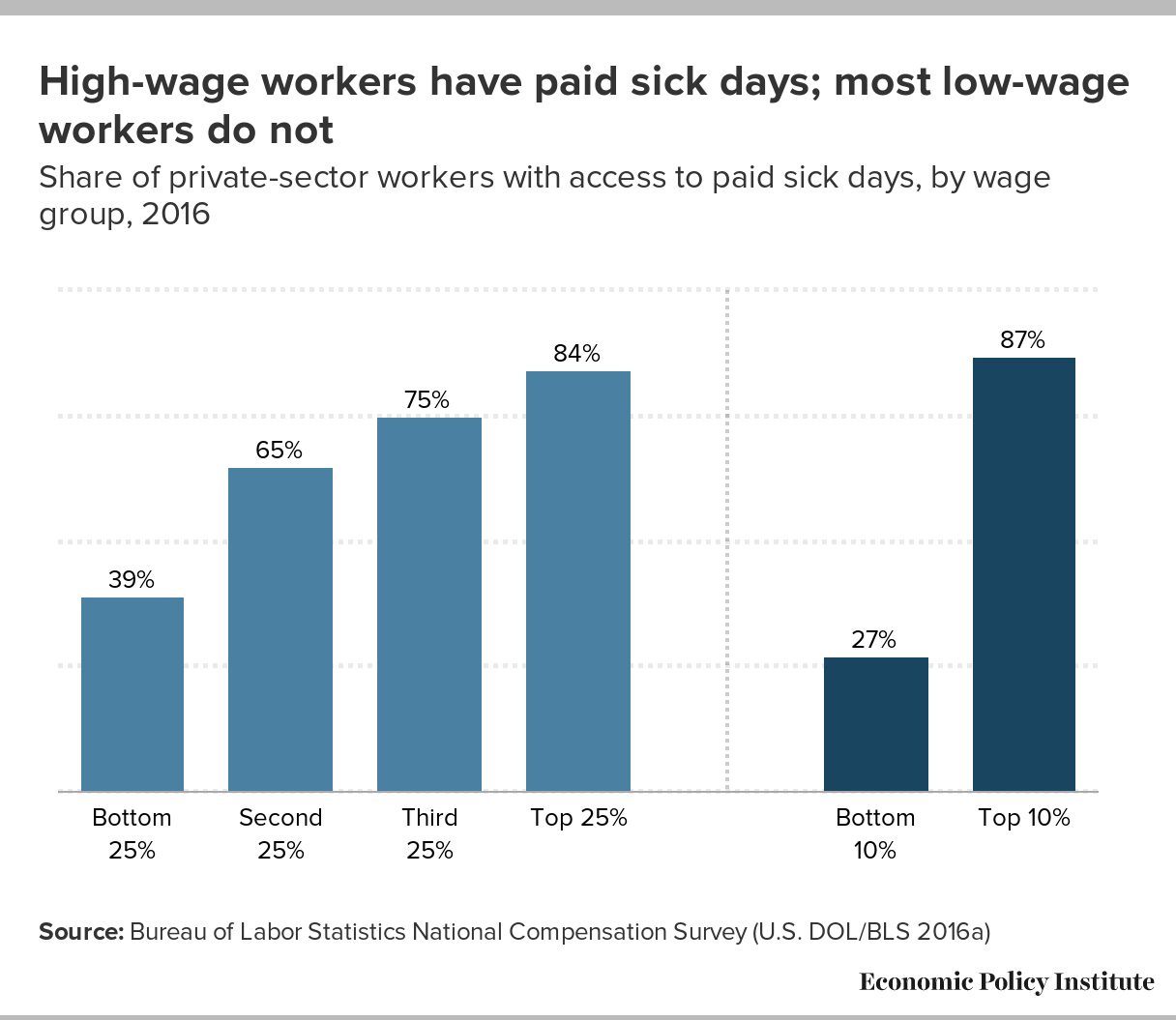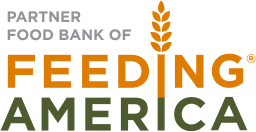Foodbanking in the time of COVID-19
Pandemics disproportionately affect the people in our lines. Here’s what we’re doing to help.
By: Caitlyn McIntosh, Development Manager, and Emily Gallion, Grant and Advocacy Manager
Last week, concerns about COVID-19, a form of coronavirus, reached a fever pitch as the Ohio Department of Health announced the state’s first three positive cases. Since then, efforts to contain the pandemic led to school closings, orders to limit public gatherings, and even the suspension of voting in the state of Ohio.
For weeks, the health and well-being of our clients, staff, and volunteers has been at the forefront of our minds as we monitor the spread of this pandemic. We have had to make very difficult choices to suspend or modify many of our offsite services, but we are making every possible effort to make sure our clients have access to the food they need.
In these trying times, we would like to commend the leadership of Governor Mike DeWine, who has made strong moves to limit the spread of the virus. Many early actions, including the closures of schools, bars, and restaurants, have provided a model for other states trying to respond to the epidemic. We are glad to see our leaders taking this virus seriously.
Background on COVID-19
COVID-19 is a form of coronavirus, a family of viruses that are zoonotic, or transmitted between animals and people. Coronaviruses have been responsible for deadly outbreaks in the past, including MERS and SARS, but COVID-19 is a new strand thought to have originated from bats. Many initial infections were traced to a large market in Wuhan, China.
Seniors and people with pre-existing conditions are at a heightened risk of becoming seriously ill as a result of this disease, but people of any age can become sick with or transmit the virus. According to the CDC, early data suggests that seniors are twice as likely to have a serious illness because of the virus.
This reality became chillingly clear when COVID-19 swept through a nursing home in a Seattle suburb, causing the deaths of 18 residents. Older adults are at an increased risk due to weakened immune systems and the increased likelihood of pre-existing conditions. The National Council on Aging stated that “age increases the risk that the respiratory system or lungs will shut down when an older person has COVID-19 disease.”
Families with small children can take comfort in the fact that, unlike influenza, COVID-19 does not seem to cause a serious threat to children. In fact, children and young adults are more likely to carry the disease with no symptoms at all. However, these populations should still take part in healthy practices as they could transmit it to someone else who may not have a strong immune system.

What does this mean for people in our lines?
One risk factor for the disease may not be immediately apparent: Analysis of past disease outbreaks, such as influenza, reveals that pandemics often disproportionately affect people who are living in poverty.
One study of the 2009 H1N1 outbreak found that, in Oaklahoma, 26 percent of white individuals who contracted the virus needed hospitalization, compared to 55 percent of black patients and 37 percent of indigenous patients.
In many ways, this is common sense: People with low incomes are more likely to work part-time jobs that do not offer benefits such as paid sick leave and healthcare. People living in poverty and people of color are also more likely to live in areas with high population density, which increases the likelihood that they will be infected.

Luckily, employees whose employment is affected by the outbreak may be eligible for additional unemployment relief. This will be especially important for employees of the restaurants, gyms, bars, and other businesses that have been ordered to close.
Workers who are required to self-isolate will be eligible for unemployment benefits even if they do not test positive for the virus. Many restrictions on unemployment benefits, including the usual waiting period for benefits to kick in, have also been waived.
Workers who need to apply for unemployment benefits can file online at unemployment.ohio.gov
This pandemic is a stark reminder that almost half of Americans live paycheck-to-paycheck, which means a loss of income due to quarantines or business closures can be catastrophic. It also decreases these households’ ability to stockpile food, water, and other necessities.
School closures are also incredibly disruptive to families’ day to day life, as workers who cannot afford childcare may be forced to stay home. Closing schools can also impact children’s cognitive development at an extremely crucial stage in life.
Encouragingly, many school districts have already begun to offer carryout school meals. Governor Mike DeWine confirmed on March 13 that the United States Department of Agriculture approved Ohio’s waiver to allow carryout meals in school.
So, what are we doing about all of this?
In the midst of the coronavirus outbreak, it may be difficult trying to follow the constant news updates and safety precautions. At The Foodbank, people are the most important resource, so it is our duty to ensure that we are serving our vulnerable populations in the safest way possible.
Unfortunately, the spread of COVID-19 has a tremendous impact both on the population we serve and our own operations.
Due to Governor Mike DeWine’s orders of limiting public gatherings to less than 100 people, we had to make the difficult decision to cancel our mobile food pantries for the time being. Clients are actively being guided towards our weekly drive thru pantries.
To meet any additional needs due to the cancellation of our mobiles, we have expanded our drive thru operations to running three times a week. Additionally, we moved to serving families once a month in effort to keep up with high demand.
Since the outbreak of the virus, our drive thru went from serving an average of 350 families per day to over 400 per day. As news changes by the day, we are always looking for ways to update our services with the community’s safety in mind.
We have made the decision to target low-income seniors with this box program because they are the population at highest risk for death or serious illness as a result of this virus. We also know that many of our seniors are homebound or on a fixed income, which makes it more difficult for them to visit the supermarket or stockpile emergency supplies.
Because we have had to suspend offsite distributions of our CSFP boxes, we have added additional drive thru distributions to serve those clients directly at our warehouse. Seniors enrolled in the program can visit our drive thru March 24 or March 26 between the hours of 9 am and 3 pm to pick up both their senior food boxes and their additional COVID-19 emergency boxes.
If you are looking for a way to help out, The Foodbank is still actively seeking volunteers. We currently have an increased need due to high demand in the drive thru and the volume of emergency boxes we are trying to package.
If you want to volunteer at The Foodbank, please make an appointment prior by calling (937) 461-0265 x31. We are enacting several safety measures to protect our volunteers, staff, and clients, including:
- Limiting walk-in traffic to The Foodbank by locking our doors
- Taking the temperature of all volunteers and staff who enter our building
- Requiring all volunteers to wash their hands prior to the start of their shift
- Asking volunteers and staff not to bring outside food into the building
- Asking any volunteers over the age of 60 to stay home
Thank you donors!
It is always heartening to see our community come together at difficult times such as that. We would like to extend our thanks to the people who have volunteered or donated in the past several weeks. In times like this, every little bit counts.
We would especially like to thank Caresource, who committed $128,000 in funding to provide additional food boxes to our at-risk seniors currently enrolled in our CSFP program. This funding will be used to prepare 1,200 boxes, each of which will contain enough food to last 14 days. We hope these boxes, which we are currently building and distribute, will help this high-risk population practice social distancing in the coming weeks.
To follow along with The Foodbank’s response efforts, follow us on our social media channels @thefoodbankinc and our website for further updates.



No comment yet, add your voice below!